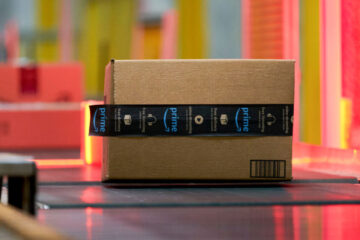President Trump unveiled his much-discussed tariffs on April 2, 2005, a day he called “Liberation Day.”
The news was anything but liberating for billions of Americans, sparking fears among consumers and business owners alike. It confirmed a universal 10 percent tariff taking effect on April 5, with further tariffs for a long list of countries to follow on April 9.
💰💸 Don’t miss the move: SIGN UP for TheStreet’s FREE Daily newsletter 💰💸
While the new tariffs would introduce more difficult circumstances for many countries, China was the standout. While Trump later backpedaled and announced a 90-day pause on the tariffs as of April 9, he chose not to include China, leaving the country with a 145% tariff to pay. That decision has already hit China hard, with official data showing that export orders are falling to their lowest levels since 2022.
CEOs were forced to react in real time to the threats the tariffs placed on their companies. Tim Cook, Apple’s CEO, says that they could cost Apple $900 million during this quarter alone. Apple is currently working to shift iPhone production to India to circumvent the effects of the tariffs.
Related: Amazon CEO sounds new consumer alarm on tariffs
Amazon’s CEO Andy Jassy didn’t get specific about numbers as Cook did, but he did say he expected prices to increase at rivals that do not have a supply chain and vendor roster as deep as Amazon’s.
While the world’s biggest companies have more money to cope with the effects of tariffs, many smaller and medium-sized companies do not. And now it’s becoming clear that one specific industry is in a very bad position to cope with the tariffs once Trump’s pause ends.
The toy aisle at your local Walmart or Target may look very different later this year.
Image source: Los Angeles Times via Getty Images
An industry that could be hit hard
The toy market was worth $114.4 billion in 2024, according to a report from Research and Markets, and it’s forecasted to nearly double by 2034, reaching $203.1 billion.
However, the tariffs pose a roadblock to that plan. The reason is simple: nearly 80% of toys imported into the United States come from China. That leaves toymakers with some difficult options: absorb the costs of the imports, or pass them on to the consumer.
MGA Entertainment is the largest privately held toy manufacturer in the U.S. and is the brand behind many of the popular toys you see on store shelves, including Bratz, L.O.L. Surprise, and Little Tikes. But thanks to the tariffs, CEO Issac Larian is facing some hard decisions.
Related: These two industries could face mass layoffs this year
“Frankly, if these tariffs do not go away, we have no choice but to do layoffs,” he said in an interview with Retail Dive.
Large toy companies are being affected as well. Mattel announced in March that it would lay off about 35% of its manufacturing workforce. However, it also said that it was making plans to combat the effects of tariffs, with plans to close one of its Chinese factories later this year. Its current operations in China represent less than 40% of its business.
“We used to have four factories that we owned in China. By the end of the year, it will be down to one,” Mattel Chief Executive Ynon Kreiz said.
President Trump, however, seems fairly unphased by the impact his tariffs will have on the toy industry.
“Well, maybe the children will have two dolls instead of 30 dolls. And maybe the two dolls will cost a couple of bucks more than they would normally,” he said.
Related: Social Security Administration makes another concerning announcement


